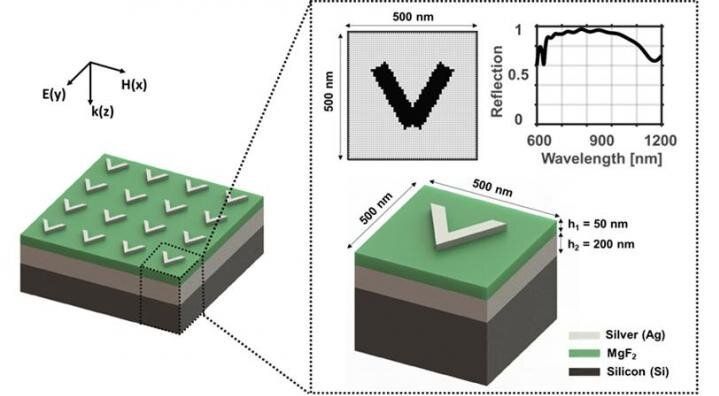Metamaterials are artificial materials engineered to have properties not found in naturally occurring materials, and they are best known as materials for invisibility cloaks often featured in sci-fi novels or games. By precisely designing artificial atoms smaller than the wavelength of light, and by controlling the polarization and spin of light, researchers achieve new optical properties that are not found in nature. However, the current process requires much trial and error to find the right material. Such efforts are time-consuming and inefficient; artificial intelligence (AI) could provide a solution for this problem.
The research group of Prof. Junsuk Rho, Sunae So and Jungho Mun of Department of Mechanical Engineering and Department of Chemical Engineering at POSTECH have developed a design with a higher degree of freedom that allows researchers to choose materials and design photonic structures arbitrarily by using deep learning. Their findings are published in several journals including Applied Materials and Interfaces, Nanophotonics, Microsystems & Nanoengineering, Optics Express, and Scientific Reports.
AI can be trained with a vast amount of data, and it can learn designs of various metamaterials and the correlation between photonic structures and their optical properties. Using this training process, it can provide a design method that makes a photonic structure with desired optical properties. Once trained, it can provide a desired design promptly and efficiently. This has already been researched at various institutions in the U.S. such as MIT, Stanford University and Georgia Institute of Technology. However, the previous studies require inputs of materials and structural parameters beforehand, and adjusting photonic structures afterwards.
